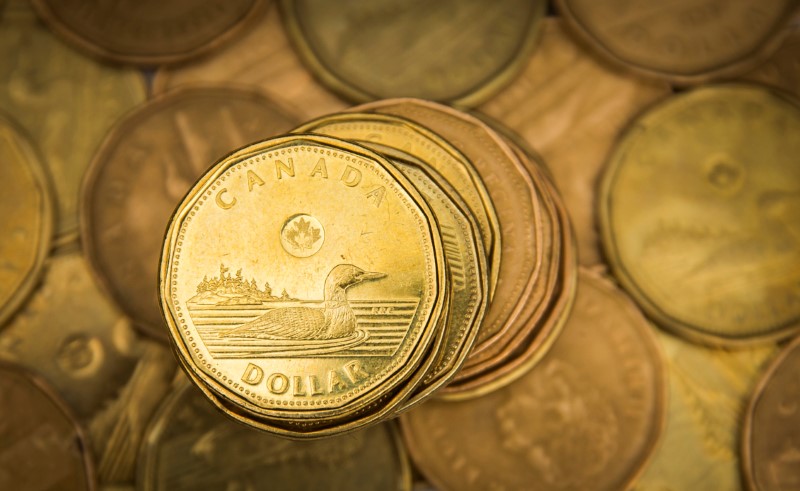TORONTO (Reuters) - The Canadian dollar weakened against its U.S. counterpart on Monday, pulling back from a seven-week high, as oil prices fell and the greenback rallied against a basket of major currencies.
The U.S. dollar rebounded from multi-month lows as expectations the Federal Reserve would announce a less aggressive interest rate hike next month faded, with traders saying the market overreacted to a modest miss on U.S. inflation.
Canadian inflation data for October, due on Wednesday, could offer clues on the Bank of Canada's policy outlook. Money markets expect the central bank to raise interest rates by at least 25 basis points at its Dec. 7 policy announcement.
The price of oil, one of Canada's major exports, was dragged down by a firmer U.S. dollar and as surging coronavirus cases in China dashed hopes of a swift reopening of the economy for the world's biggest crude importer.
U.S. crude prices fell 1.2% to $87.9 a barrel, while the Canadian dollar was trading 0.2% lower at 1.3284 to the greenback, or 75.28 U.S. cents.
It traded in a range of 1.3240 to 1.3308 after touching on Friday its strongest intraday level since Sept. 20 at 1.3233.
Canadian government bond yields were mixed across a flatter curve as the market reopened following the Remembrance Day holiday on Friday.
The 10-year was up about half a basis point at 3.141%, after touching on Friday its lowest intraday level in more than five weeks at 3.126%.
(Reporting by Fergal Smith; Editing by Paul Simao)
